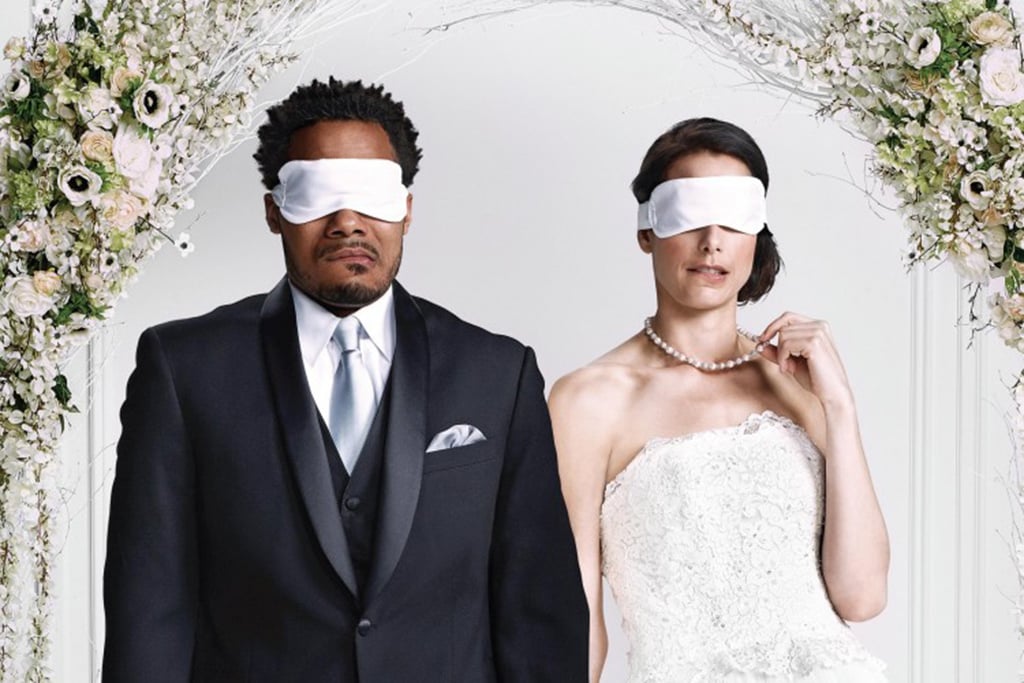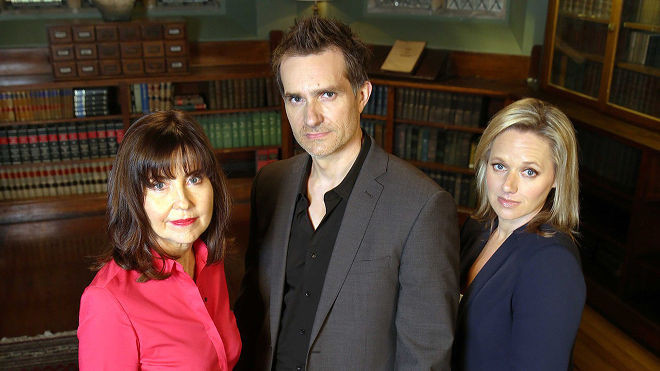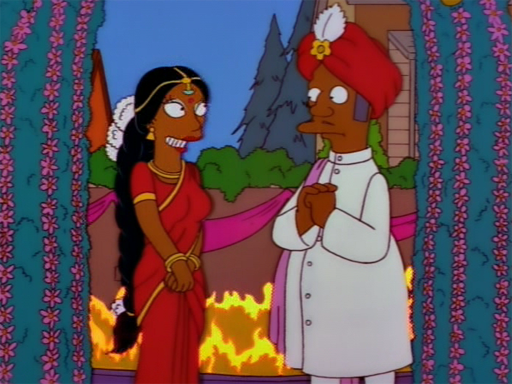Turns Out Channel Nine’s ‘Married At First Sight’ Is Kinda Ignorant About Arranged Marriages Too
Marriage equality isn't the only reason this show comes across as a bit off.

Dating reality TV show-slash-social experiment-slash-abomination Married At First Sight has received a lot of attention in the last few weeks. Channel Nine’s announcement that it would be importing the reality program was met by a Change.org petition calling for the show’s cancellation that has pulled 20,000 signatures and counting. The petition description calls the show “morally unsound” and states: “It is appalling that we live in country that will not support marriage equality but will support a television show such as this!”
Like everyone who signed the petition, I fully support marriage equality; the fact that Australia is so behind on it is embarrassing. But if we’re looking at faults in Married At First Sight, marriage equality is just one among many.
The show originated in Denmark and has been replicated in several countries around the world. The Australian version was supposed to air on Channel Nine last year, but got pushed back. Nine is now marketing it as a “social experiment,” in which a trio of experts get to play with some unmarried sadsacks like a lab experiment. The experts – two psychologists and a “neuropsychotherapist” (which, according to my computer, is a red underline-worthy word, but Nine seems to think it’s a thing) — use *science* to hand-pick four couples and save them from perpetual singledom.
Then they’re go-oing to the chapel and they’re gonna get ma-a-arried.

Simply stand in front of some books and you can be an expert too! (Source: 9.)
Unlike most arranged marriages the pair don’t know each other before the day of the wedding, and they meet for the first time when the veil is lifted. But like many religious arranged marriages, such as in Orthodox Judaism, the couples are paired together by matchmakers, and for the people in the show it certainly feels like an arranged marriage — they say as much in the promo.
A lot of Married At First Sight‘s promotional material tries to equate traditional arranged marriages with what Channel Nine is doing; exclusive clips on the show’s website feature several discussions around the benefits of arranged as opposed to love marriages and how people in arranged marriages might fall in love; the in-house neuropsychotherapist (seriously?) states “statistics prove that arranged marriages tend to last longer,” while psychologist Sabina Read notes that the 4 percent divorce rate for arranged marriages is “staggering[ly] low” compared to that of love marriages.
What Channel Nine’s photogenic experts don’t mention is that statistics of that sort mostly apply to cultures where arranged marriage is accepted practice, and divorce is severely frowned upon, if not outlawed entirely. If we assume the stats are true and the marriages in Married At First Sight will therefore produce long marriages, we’re overlooking many cultural differences.
–
Why do arranged marriages last longer?
There are many nations where arranged marriages are long-lasting – but that’s often where the positives end. India has one of the highest rates arranged marriage rates in the world, at 89 percent, and one of the lowest divorce rates in the world: 1.2 percent. On paper, that might convince you, especially given around 30 percent of married Australians are expected to divorce.
But those statistics don’t reveal traditions in India that might impact the numbers, such as the shame associated with divorce, marital rape and different attitudes to gender. Almost 98 percent of sexual violence in India happens within marriages, yet the Indian legal system refuses to criminalise marital rape. Many men and women would rather remain in an unhappy marriage than risk the shame that comes from divorce.
In Ethiopia, up to 89 percent of marriages are arranged (particularly in underage girls), with a divorce rate of 1.5 percent, and the reasons for low divorce rates are similar to those in India. Intimate partner violence is an issue, with 32 percent of married women having been forced into their first sexual experience by their husbands (keep in mind that’s only the number of reported cases). Other reasons for marriage longevity include a lack of awareness of rape, gender inequality and, again, marital rape not being criminalised.
Among the international Orthodox Jewish community, arranged marriages are still common, and only 0.9 percent of Israeli Jewish marriages end in divorce. But in hardline Orthodox Judaism only men can grant a divorce, and women who seek a divorce from their husbands have almost no recourse. There are also cases of emotional and physical abuse in Orthodox Jewish arranged marriages.
That’s why it seems like Married At First Sight’s experts have overlooked or ignored the bigger picture. It’s one thing to see that arranged marriages last longer. It’s something completely different to understand why.
Arranged marriages are a misunderstood notion to many Australians. It’s hard to imagine Married At First Sight can pull this whole thing off given that viewers – and even participants – may well find the concept absurd.
–
Does that mean it won’t work in Australia?
Despite the overwhelming impression of Channel Nine’s marketing (and the title of the show itself) the couples on Married At First Sight won’t enter into real marriages – just vague 30-day commitments. No doubt Nine have pushed the strangers-getting-married angle so hard because viewers see “marrying” a stranger as a bizarre and radical move.
Supporters of the Change.org petition have been outraged at the fact that the show ignores marriage equality – and rightly so. But the show is also basing marriage success on out-of-context information – data about arranged marriages that ignores important factors such as cultural attitudes towards the bonds of marriage itself. Well, and a neuropsychotherapist (I’m still not over it).
By applying unexamined relationship theories to a completely different cultural landscape, Married At First Sight is on unsteady legs. It claims to have found a quick-and-easy formula for marriage, but doesn’t take into account the cultural variables in the formulas before it.
–
Michelle See-Tho is a freelance writer and journalist. She writes for Junkee, AWOL, and other publications around the place. Find her atmichelleseetho.com, or follow her on Twitter.
